Absolut Warhola (2001)
Género : Documental
Tiempo de ejecución : 1H 20M
Director : Stanislaw Mucha
Sinopsis
Absolut Warhola is a 2001 film directed by Stanislaw Mucha about Andy Warhol's extended family, whom he never met, from rural Slovakia. The film follows the filmmakers as they travel through eastern Slovakia to interview Warhol's surviving relatives, ethnic-Ruthenians living near the Polish border in Miková, and to visit the Andy Warhol Museum of Modern Art in Medzilaborce. The museum is shown to be in a poor state, with the museum director and staff openly soliciting donations from the viewer and giving out the museum's bank account details.

Una pelota blanca de ping-pong va flotando por un riachuelo hasta que la encuentra Bilgee, un niño de Mongolia. Su abuela le dice que es una perla resplandeciente que ha caído del cielo. Él se cree la historia y se pasa toda la noche en la pradera con sus dos mejores amigos: Ergotor, que no sabe montar a caballo, pero sabe conducir una moto, y Dawaa, que es muy pequeño, pero nunca se rinde. Sin embargo no llegan a ver el ansiado resplandor de la pelota y todo lo que consiguen es que sus padres les den una paliza cuando regresan a casa. Durante el festival anual de Nadam, los niños confunden la «perla resplandeciente» de Bilgee con la pelota de golf que ven en una película. El proyeccionista les sacará de la confusión y provocará el desencanto de los niños.

A man endeavors to collect memories of his grandparents who died in a concentration camp during the Holocaust.

In West Africa during the late 17th century, King Adanggaman leads a war against his neighboring tribes, ordering his soldiers to torch enemy villages, kill the elderly and capture the healthy tribesmen to sell to the European slave traders. When his village falls prey to one of Adanggaman's attacks, Ossei manages to escape, but his family is murdered except for his captured mother. Chasing after the soldiers in an effort to free her, Ossei is befriended by a fierce warrior named Naka.
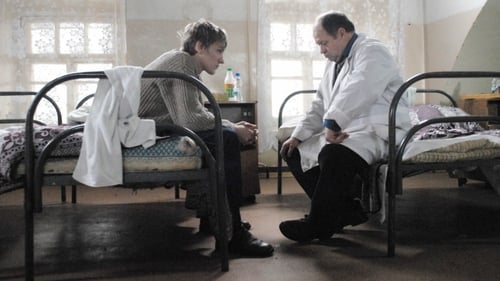
Adaptación de una historia de Antón Chéjov en forma de falso documental a cargo del mítico cineasta ruso Karen Shakhnazarov seleccionada por Rusia como candidata a los Oscar.
Basada en hechos reales; se centra en el médico jefe de un manicomio que acaba convirtiéndose en paciente del mismo. Respetando el relato original, los autores trasladaron deliberadamente la acción al presente, rodando la película en un manicomio real de una manera semi-documental.

De Düva is a 1968 Oscar-nominated American short film that parodies the films of Swedish director Ingmar Bergman, including Wild Strawberries and The Seventh Seal. The film borrows heavily from the plot lines of some of Bergman's most famous films. The dialogue, seemingly in Swedish, is actually a Swedish-accented fictional language based on English, German, Latin, and Swedish, with most nouns ending in "ska." The film was nominated for an Oscar for Best Live Action Short Film.
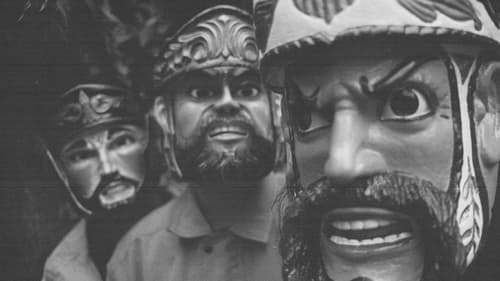
Ferding, Santos and Willy only drink in despair. One day, a Canadian woman’s visit changes everything.

Brazilian director Julio Bressane directs this religious biography on the life and work of Saint Jerome, the monk who first translated the Bible into Latin. Set both in the desert and in the posh confines of the Vatican, Jerome (Everaldo Pontes) agonizes over which Latin word would best fit its Hebrew counterpart. ~ Jonathan Crow, Rovi
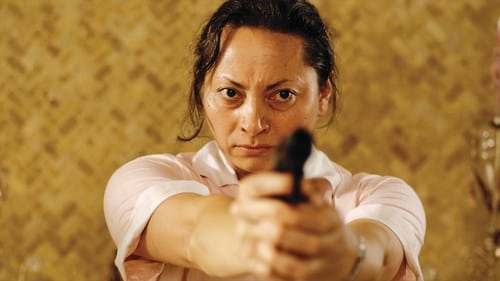
Toñi y Paquita viven y trabajan como empleadas domésticas en la aristocrática familia González-Dubois en Panamá. Durante mucho tiempo se les trata mal y se lespaga peor. Pero ahora finalmente se han cansado de los insultos y la falta de respeto de sus empleadores. Mientras que la familia está planeando un viaje de compras a Miami, Toñi y Paquita forjan otros planes llenos de venganza y satisfacción. Nadie espera que Gonzalez-Dubois, una familia muy respetable, ha mantenido un gran secreto y esto es de gran repercusión en el viaje! Ingeniosa, y despiadada sátira negra que trata hábilmente sobre las diferencias de clase en el ámbito de América Latina.

'Bruce' goes to head with bandits who are terrorising and murdering villagers.

Joy is a fable about courage and youth. It tells the story of Luiza, 16 year old girl, who can not stand to hear about the end of the world… On a Christmas night, his cousin John is mysteriously shot in a street in the Lowlands and disappears into the night. Weeks later, while Luiza spends days alone in the apartment where he lives with his mother in Rio de Janeiro, a mysterious visitor comes knocking on your door: John, as a ghost, asking to hide there.

Ustanička ulica is a Serbian political thriller. Dušan Ilić (Gordan Kičić), employed at the Serbian state prosecutor's office, gets a top secret case to investigate a war crime committed by a disbanded paramilitary unit. He manages to find Mićun (Uliks Fehmiu) who's the only surviving witness.
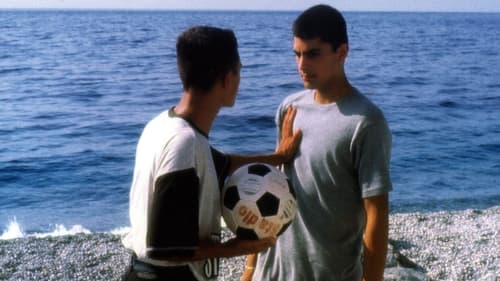
This is the story of Rosario and Matteo, two man from Southern Italy. Rosario is helped by Luigi to settle in the north. Luigi wants to give Rosario a chance to redeem himself and offer him, at the same time, an opportunity to confront his beliefs with the ones of his son Matteo. Rosario lives in a "commune" and Matteo in a beautiful, comfortable house. They're both introverted and shy and find a common ground: they meet, go out together, become friends and show each other a completely different way of living their lives as teenagers.

Un hombre explora el proceso de formación de la sexualidad y está buscando una mujer que no existe.

Robert Castle is the idealistic pastor of St. Mary's Episcopal Church in Harlem, and also the cousin of filmmaker Jonathan Demme. Demme's affectionate portrait of his cousin traces Castle's story, beginning with his first parish assignment, in New Jersey in the early 1960s, in an increasingly African-American-populated neighborhood rocked by violence and civil rights protests. The film raises intimate discussions of race, faith and family, while also showing Castle's daily routine as a pastor.

Three parallel stories of immigrants in Tel Aviv during the Gulf War and about coming together while sealed in a room during the Scud attacks.

SOMETHING NECESSARY is an intimate moment in the lives of Anne and Joseph. A woman struggling to rebuild her life after the civil unrest that swept Kenya after the 2007 elections claiming the life of her husband, the health of her son and leaving her home on an isolated farm in the Kenyan countryside in ruins, she now has nothing but her resolve to rebuild her life left. A young man, troubled gang member who participated in the countrywide violence is drawn to Anne and her farm seemingly in search of redemption. Both, Joseph and Anne need something that only the other can give to allow them to shed the painful memories of their past and move on.
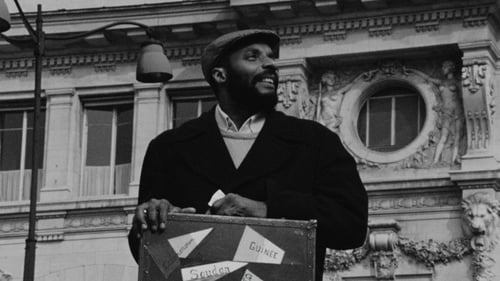
The film Soleil Ô, shot over four years with a very low budget, tells the story of a black immigrant who makes his way to Paris in search of “his Gaul ancestors”. This manifesto denounces a new form of slavery: The immigrants desperately seek work, a place to live, but find themselves face to face with indifference, rejection, humiliation…until the final call for uprising. “Soleil Ô” is the title of a West Indian song that tells of the pain of the black people from Dahomey (now Benin) who were taken to the Caribbean as slaves.

Consecuencia directa de la 3a película. Oryu busca al niño ciego que ella olvidó y está implicada con una guerra de césped yakuza que ocurre en el Tokio Teatro.

Basado en hechos reales, "Hiroshima" se distingue por ser un musical silencioso. Juan es cantante de un grupo de rock pero no es una persona que precisamente hable demasiado. Durante la noche, trabaja en una panadería y durante el día, duerme. "Hiroshima" es la historia de uno de estos días y cuenta lo que le pasa cuando se levanta.
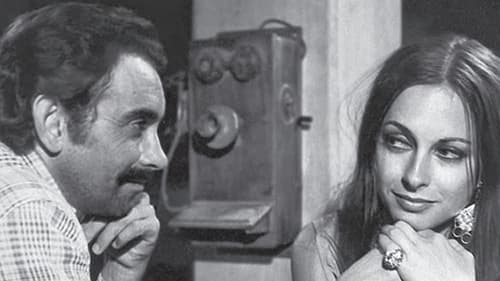
As a child he was kidnapped by gypsies that raised him, without he ever knowing his parents. As a young man Tonho leaves the gypsies and go live by himself, meeting in his way a beautiful woman, who lost her brother, and a dangerous gang of violent criminals.













